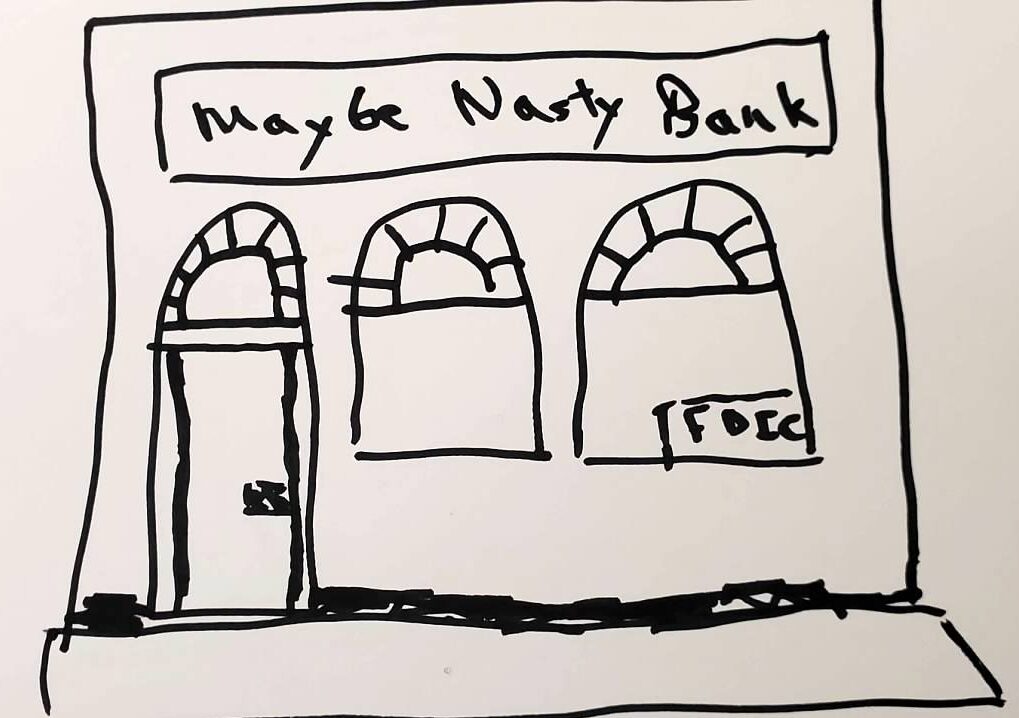When you read about bankruptcy you are very likely to see quite of bit of carrying on about stopping garnishment, stopping foreclosure, ending harassment from creditors, stopping those nasty phone calls, and in general making the debts just go away. Bankruptcy tends to be good for all those things. You may not see as much about getting judgments cleared from your record, however, because the discharge of your debts from the bankruptcy court does not automatically do that.
The bankruptcy court discharge is an order from a bankruptcy judge which eliminates most personal liability for unsecured debts. It contains among other things an order addressed to your creditors requiring that they make no further collection efforts. It just requires the creditors to stop. For the most part, it doesn’t require the creditors to take any other action. One of the things it does not require is that they file a satisfaction of judgment with the state district court if they have a judgment against you. So when your bankruptcy is done, the creditors will leave you alone. You won’t hear from them again. If the creditor has a judgment against you, the creditor is prohibited from trying to collect anything on the judgment. But the judgment itself just sits there and continues to be a matter of public record just as it was before the bankruptcy.
Most of the time for most people that is a big “SO WHAT?” As long as the creditor is paralyzed and can’t collect, who cares whether the judgment is still on the record? After all, the judgment will expire when it is ten years old, and the bankruptcy discharge definitely prevents the creditor from renewing the judgment before it expires. But sometimes a lender will care if you are trying to get a mortgage or refinance an existing mortgage. In certain odd instances an employer or future employer might care too – judgments don’t look the best on a background check.
If you should be one of the relatively rare folks who really needs to get the judgment cleared from the state court record, there is a procedure for doing that. It is not part of the federal bankruptcy statute, but is a matter of state law. In Minnesota, the process is laid out in Minnesota Statutes Section 548.181. The clerk of court in most Minnesota counties can provide you with a form for this and a set of instructions to go with it. The form and instructions for Hennepin County can be found here. The statute is fairly easy to understand and reads as follows:
“548.181 DISCHARGE OF JUDGMENTS AGAINST BANKRUPTCY DEBTORS.
Subdivision 1.Application for discharge.
A judgment debtor who has received a discharge under United States Code, title 11, or an interested party, upon paying a filing fee of $5 for each judgment, may apply to the court administrator of any court for the discharge of all judgments entered in that court against the judgment debtor that were ordered discharged by the bankruptcy discharge.
Subd. 2.Application requirements; service.
An application under subdivision 1 must identify each judgment to be discharged, must be accompanied by a certified copy of the judgment debtor’s bankruptcy discharge or a certificate by the clerk of the United States Bankruptcy Court of the discharge, must state the time the judgment creditor has to object as specified in subdivision 3 and the grounds for objection as specified in subdivision 4, must be served at the expense of the applicant on each judgment creditor either:(1) in the manner provided for the service of a summons in a civil action and must be accompanied by an affidavit of service; or(2) by certified mail to the judgment creditor’s last known address as it appears in the court record, and must be accompanied by an affidavit of mailing.
Subd. 3.Objection to discharge.
The court administrator, without further notice or hearing, shall discharge each judgment except a judgment in favor of a judgment creditor who has filed an objection to discharge of the judgment within 20 days after service of the application on the judgment creditor. An objection to discharge of a judgment must be served on the judgment debtor in the same manner as an answer in a civil action.
Subd. 3a.Certification of discharge.
Upon receipt of a filing fee of $5, the court administrator shall certify to the judgment debtor or other interested party the judgments against a person that have been discharged by the administrator.
Subd. 4.Court order.
If a judgment creditor objects to the discharge of a judgment, on motion of the judgment debtor, the judgment creditor, or other interested party, the court shall order the judgment discharged except to the extent that: (1) the debt represented by the judgment was not discharged by the bankruptcy discharge; or (2) the judgment was an enforceable lien on real property when the bankruptcy discharge was entered. If the judgment was an enforceable lien on some, but not all, real property of the judgment debtor, the discharge shall only be entered as to real property not subject to an enforceable lien.“
That looks pretty easy doesn’t it?
Well, IT’S NOT AS EASY AS IT SEEMS. Here’s the catch. Even though the law clearly states that the filing fee is only $5.00, Hennepin County has started charging a regular district court filing fee of $324 as well as the $5.00. As far as I know, they are the only county in the state that is doing that, but don’t be surprised if you run into it in some other county. I expect that the idea is going to spread. You have to pay one filing fee per judgment, so if you have a lot of judgments to get rid of this could really run into money. It’s probably a violation of law for them to be doing this, but for a few hundred dollars nobody so far has been able to afford to challenge it.
Around the year 2000 the court clerks across the state came up with forms and instructions for this that are available to the public. Since then nobody has hired me to do this procedure. You definitely need a lawyer to do the bankruptcy itself, but once the bankruptcy is completed most people can do this judgment discharge application themselves.
This post is for general information purposes only and does not create an attorney-client relationship. It is not legal advice. It is recommended that you consult the attorney of your choice concerning the details of your case.











